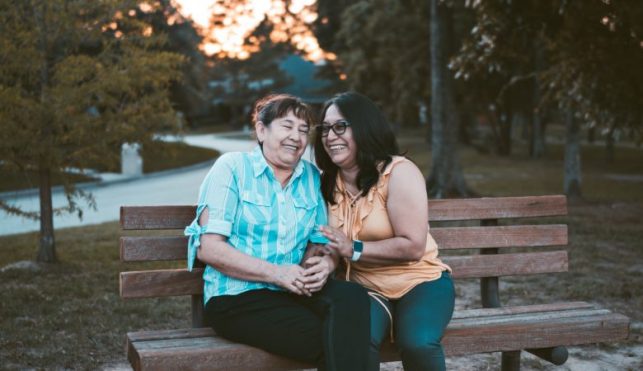
Australians are growing older and this will affect small business employers and employees. Baby boomers are starting to leave the workforce and not enough children are being born to replace them. Meanwhile, business owners may need to plan for an increase in caring responsibilities as the parents of their employees become older and frailer.
From 1994-2014, the proportion of people 65+ rose from 11.8% to 14.7% while the 85+ segment almost doubled from 1% to 1.9%. Older women continue to outnumber older men: 55% of people 65+ and 67% of people 85+ are female.
Employees who need to combine caring responsibilities with their work may become the norm rather than the exception.
Caring responsibilities
Today 4.1 million employees (38.2% of workers) in Australia already have unpaid caring responsibilities. The value of this care, according to one 2010 study, is worth $40 billion a year. Because of this unpaid work, carers often give up permanent, well-paid roles for work below their skills or in low-wage industries. In 2014, 70% of primary carers for their parents were women.
Under the National Employment Standards, there are various supports for carers in the workplace, including flexible working arrangements, parental, and personal/carer’s leave. Unfortunately, unpaid carers are often in part-time and casual jobs – less than 23% of female primary carers work full time – and currently have lower entitlements to personal/carer’s leave and compassionate leave.
Personal/carer’s leave
This leave is available to provide care for someone in the immediate family or household who is ill, injured or affected by emergency. All full-time employees accrue 10 days of paid personal/carer’s leave for each year of continuous work. If an employee runs out of paid personal/carer’s leave, they can take 2 days per occasion of unpaid carer’s leave.
Part-time employees accrue a pro-rated amount, based on the hours they have worked.
Compassionate leave
Employees may take 2 days per occasion of paid compassionate leave (unpaid for casuals) if a member of their immediate family or household has a personal illness or life-threatening injury, or dies.
Flexible working
Employees who have worked for 12 months (and casuals who have worked for 12 months and expect to stay longer with an employer) can ask for flexible working arrangements. These arrangements might include part-time work, flexi-time, job sharing, working from home or staggered hours. Carers, among other groups, have a statutory right to ask for flexible working.
What employers can do
Employees with caring responsibility for their aging parents are likely to need more flexible working arrangements, access to formal support services and the ability to take time off to share the load with others in their family.
Good employers can recognise this shift by creating a new carer strategy or making sure their anti-discrimination policies recognise the rights of carers. They might offer, for example, more flexible working and leave arrangements, return to work programs, or employee assistance plans to help employees combine their work and care responsibilities.
Employsure foresees the aging population will increase a need for Australians to take time from work to care for parents and other immediate family members.
Many Australian businesses will experience this increase. Employsure can give you guidance on creating a new carer’s policy, updating your employee handbook to include the rights of carers, or other initiatives for creating a more inclusive workplace. Please call Employsure today on 1300 651 415.
